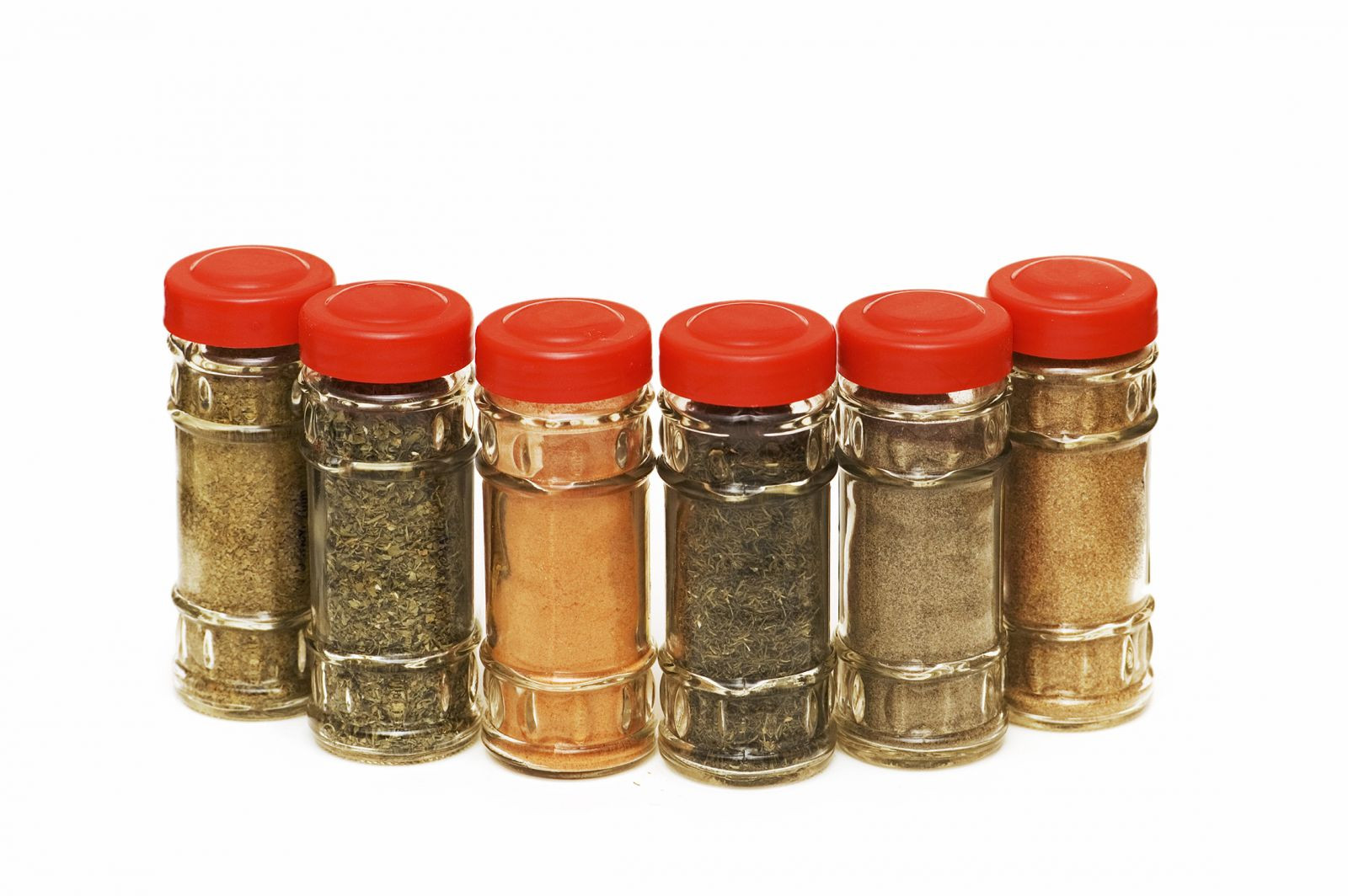
Counting steps is good — is combining steps and heart rate better?

Appendix pain: Could it be appendicitis?

Can saw palmetto treat an enlarged prostate?

How does Ozempic work? Understanding GLP-1s for diabetes, weight loss, and beyond

Zinc: What it does for the body, and the best food sources

Respiratory health harms often follow flooding: Taking these steps can help

Tips to leverage neuroplasticity to maintain cognitive fitness as you age

Can white noise really help you sleep better?

Celiac disease: Exploring four myths

What is prostatitis and how is it treated?
Nutrition Archive
Articles
What's new in nutritional guidelines?
The USDA recently updated its recommendations for healthy eating. Here are the takeaway messages for men.
Images: Thinkstock
Every five years, the USDA releases its Dietary Guidelines for Americans—advice to encourage healthier eating patterns based on the latest nutritional science.
"While there is a lot of nutritional information out there, the guidelines are the foundation for many government food programs, and many men can benefit from their recommendations," says Katherine McManus, director of the Department of Nutrition at Harvard-affiliated Brigham and Women's Hospital.
Are artificial sweeteners safe?
Ask the doctor
Image: Thinkstock
Q: My doctor advised me to give up my soda habit, but I was thinking about switching to diet soda. What is your advice about the safety of artificial sweeteners?
A: I support your decision to decrease the amount of added sugar in your diet, but it is less clear if artificial sweeteners are the answer. These sugar substitutes do appear to be safe when consumed in usual amounts. Initial studies in rats, performed decades ago, raised a possible link to bladder cancer, but no subsequent studies in humans have confirmed this relationship.
High-dose vitamin D may not lower risk of falls
Vitamin D supplementation has been proposed as a possible preventive strategy to improve lower-extremity function and reduce risk of falls among older adults. But taking higher doses does not improve function and also may increase the risk of falls, according to a study in the February 2016 issue of JAMA Internal Medicine.
The recommended daily allowance is 600 international units (IU) for men ages 51 to 70 and 800 IU for those older than 70. Many older adults get too little vitamin D in their diet and from sun exposure.
Why Harvard experts have a beef with the new meat guidelines
The final recommendations do not specify limiting consumption of red and processed meats, which have been linked to cancer risk.
Image: Thinkstock
The report of the Dietary Guidelines Advisory Committee, released in February 2015, suggested that the then-forthcoming update to the Dietary Guidelines for Americans adopt several changes from previous versions. It advised limiting added sugars to 10% of calories; removing the ceiling on dietary fats as long as saturated fat comprises no more than 10% of calories; and limiting consumption of red and processed meat.
When the final guidelines were released by the Department of Health and Human Services (HHS) and the Department of Agriculture (USDA) in January 2016, the caveat on red and processed meat was missing. Through that omission, the guidelines "censored conclusions of the scientific advisory committee," according to a statement on the website of the Harvard T.H. Chan School of Public Health. Dr. Frank Hu, Harvard professor of nutrition and epidemiology, was a member of the federal Dietary Guidelines Advisory Committee, which spent two years reviewing reams of scientific evidence on diet and health and drafting the guidelines that were submitted to HHS and USDA. "Although there are some areas of improvement in this edition over previous ones, some simple but important recommendations are watered down, especially reducing consumption of red and processed meat," he says.
Why dietary supplements are suspect
Supplements aren't held to the same standards as FDA-approved drugs. Evidence indicates that few are effective, many are useless, and others may be harmful.
Image: Thinkstock
Dietary supplements—including herbs, vitamins, minerals, and other products—are a $37-billion industry in the United States, and 60% of women are taking them regularly. At the same time, mounting research is suggesting that supplements—even mainstays like calcium—may be harmful at high doses.
The use of supplements and other alternatives to standard treatments is centuries old, but Dr. David Eisenberg, adjunct associate professor at the Harvard T.H. Chan School of Public Health, was the first to document the widespread use of alternative therapies in the United States. In a 1993 article in The New England Journal of Medicine, Dr. Eisenberg and colleagues reported that more than a third of Americans were using unconventional therapies, largely for chronic conditions, and most were doing so without letting their clinicians know. That report covered acupuncture, spinal manipulation, massage, and yoga, but it also focused public attention on all unconventional treatments, including the growing use of herbal remedies and other dietary supplements. In 1998, the Office of Alternative Medicine in the National Institutes of Health (NIH) was revamped as the National Center for Complementary and Alternative Medicine and charged with funding rigorous studies into the safety and effectiveness of alternative physical treatments as well as popular dietary supplements and herbs.
Correction: healthy prepared entrée
In the January Health Letter, we gave you suggestions for finding healthy frozen food entrees. Because of a typographical error, the text of the article incorrectly stated that you should look for 5 or fewer grams of fiber per serving. In contrast, the table (reproduced below) noted accurately that you should look for entrees with 5 or more grams of fiber per serving. We apologize for the error in the text.
What to look for in a healthy prepared entrée: | |
When the label says... | Look for... |
Calories | 600 or less |
Fiber | 5 grams or more |
Sodium | 500 milligrams or less |
Trans fat | 0 grams |
Saturated fat | 5 grams or less |
Sugar | 0 grams |
Omega-3 fatty acids: Does your diet deliver?
Most Americans don't get the recommended amount of these potentially heart-protecting fats.
Recently, a Harvard Heart Letter subscriber emailed us a question about omega-3 fatty acids, the unique fats abundant in many types of fish that may be linked to a lower risk of cardiovascular disease. Is there a difference, he wondered, between farm-raised and wild-caught salmon in terms of omega-3 fatty acid content?
It's a reasonable question, especially considering that wild salmon is often far more expensive than the farm-raised variety. But how much omega-3 fatty acid do we really need in our diets? And are fish the only source? Here's a brief summary of what you should know about omega-3s.
Eating more fruit may help lower blood pressure
The longstanding "More Matters" campaign urges Americans to eat more fruits and vegetables (see www.fruitsandveggiesmorematters.org). Evidence to support this healthy habit keeps piling up, with the latest from a study that pooled dietary data from three large, long-term studies that followed more than 187,000 people for an average of over 20 years.
The researchers found that people who ate more whole fruits—especially apples, pears, grapes, and raisins—were less likely to develop high blood pressure than those who rarely ate those foods. As for vegetables, broccoli and carrots appeared to be the best choices for staving off high blood pressure. Fruits and vegetables provide minerals such as potassium and substances called flavonoids, both of which are linked to lower blood pressure. The study was published online in the Dec. 7, 2015, issue of Hypertension.
Rethink your food and drink: Choices that may affect diabetes risk
If someone you know has been diagnosed with type 2 diabetes, you might be wondering about how you can lower your own risk. Fortunately, multiple studies have shown that many of the same healthy eating choices that can help your friend or loved one control their diabetes can also help you prevent it. The exact relationship between eating specific types of foods and the risk of developing diabetes remains somewhat controversial. But the study findings are consistent with what experts consider to be healthy eating habits for most adults.
So, if you're interested in lowering your risk of type 2 diabetes, it can't hurt to try getting more of the foods and nutrients that can lower your risk — and to avoid those that can raise it.
Can everyday spices make you healthier?
Turmeric, coriander, and cumin may boost your health and breathe new life into tired dishes.
The health benefits of foods such as berries, broccoli, and salmon are well known. But your kitchen's spice rack may also hold some secret weapons against conditions such as inflammation, heart disease, cancer, and more. "Spices are underused, but it would be very easy to take advantage of them and improve health," says Dr. Lipi Roy, an internal medicine physician at Harvard-affiliated Massachusetts General Hospital.
There are few large randomized trials that demonstrate spices' health effects. But many studies in animals suggest that several spices offer benefits. So instead of flavoring your food with salt and butter, which can contribute to high blood pressure and heart disease, consider using the following spices.

Counting steps is good — is combining steps and heart rate better?

Appendix pain: Could it be appendicitis?

Can saw palmetto treat an enlarged prostate?

How does Ozempic work? Understanding GLP-1s for diabetes, weight loss, and beyond

Zinc: What it does for the body, and the best food sources

Respiratory health harms often follow flooding: Taking these steps can help

Tips to leverage neuroplasticity to maintain cognitive fitness as you age

Can white noise really help you sleep better?

Celiac disease: Exploring four myths

What is prostatitis and how is it treated?
Free Healthbeat Signup
Get the latest in health news delivered to your inbox!
Sign Up











